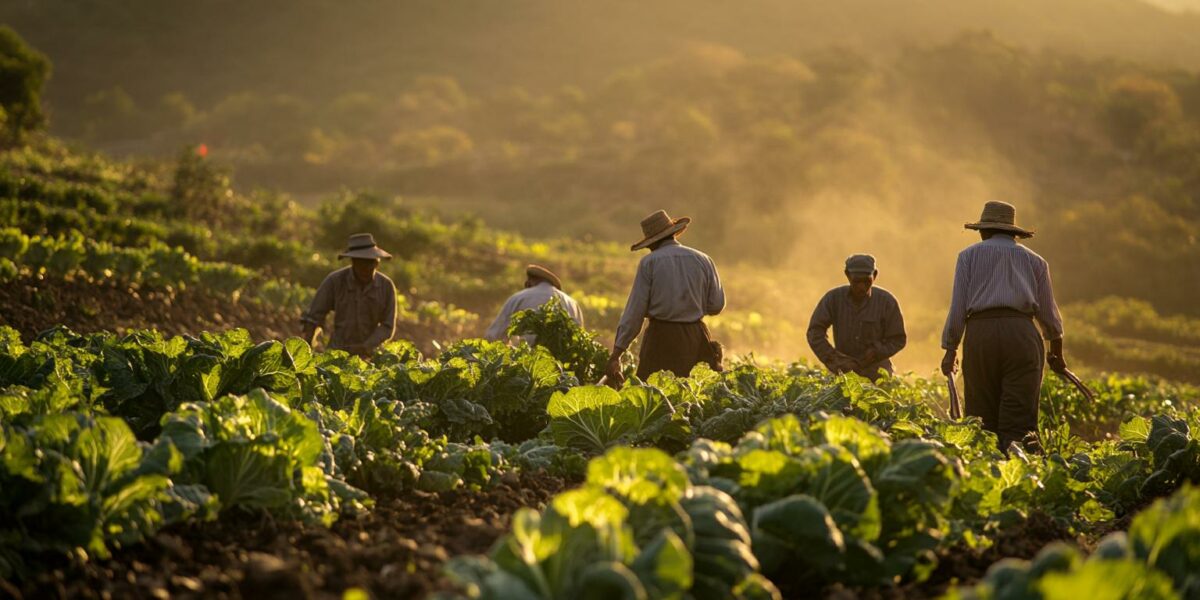Kimchi’s Future at Risk Due to Rising Temperatures
South Korea’s beloved kimchi faces an uncertain future as climate change progressively impacts the cultivation of napa cabbage. Experts reveal that the rising temperatures are reducing both the quality and quantity of this essential ingredient, threatening the traditional dish’s existence.
Napa cabbage, vital for kimchi, thrives in cooler climates. However, the intensifying heat of summer now jeopardizes its growth. Studies suggest that if temperatures continue to rise, South Korea might eventually struggle to cultivate this crucial crop.
“We hope these predictions don’t come to pass,” expressed Lee Young-gyu, a plant pathologist, emphasizing the narrow temperature range required for optimal cabbage growth. The ideal temperatures lie between 18 and 21 degrees Celsius.
The effects of climate change are already palpable in both commercial and domestic kitchens. Farmers and kimchi makers are noticing the adverse changes, as the heart of the cabbage deteriorates and the root becomes mushy due to the heat.
Declining Cabbage Farming Areas
Data reveals a significant decline in highland cabbage farming areas. Government statistics indicate that the area farmed last year was less than half of what it was two decades ago. This trend poses a serious threat to the traditional kimchi industry.
According to the Rural Development Administration, projections paint a bleak picture for the future:
- The farmed area is expected to shrink dramatically within the next 25 years.
- By 2090, highland cabbage cultivation may cease entirely.
- Higher temperatures, unpredictable rains, and pests contribute to this decline.
Researchers highlight that the warmer and longer summers exacerbate the challenges faced by farmers. A fungal infection that wilts the cabbage close to harvest adds to their woes, making it even harder to sustain napa cabbage farming.
Kimchi’s survival is further threatened by cheaper imports from China. Customs data shows that kimchi imports have risen, with over 98% coming from China, intensifying competition for local producers.
Government and Scientific Interventions
In response to the crisis, the government has resorted to massive climate-controlled storage to prevent price spikes and shortages. Scientists are racing against time to develop crop varieties that can withstand warmer climates and fluctuating weather conditions.
Despite these efforts, farmers like Kim Si-gap, who has spent his life in Gangneung’s cabbage fields, express concern. These new varieties might be more expensive to cultivate and may not retain the familiar taste of traditional kimchi.
“When we see the reports that there will come a time in Korea when we can no longer grow cabbage, it was shocking on the one hand and also sad at the same time,” Kim reflected, echoing the sentiments of many farmers.
Kimchi, a staple on every Korean table, faces an existential threat. The implications of climate change on this cultural cornerstone are profound, raising pressing questions about the future of this cherished dish.
The Struggle for Sustainability
As the climate crisis deepens, South Korea’s kimchi industry grapples with numerous challenges. The battle to maintain tradition while adapting to new environmental realities is ongoing and increasingly difficult.
Efforts to develop resilient crop varieties are crucial, but the transition is fraught with obstacles. Farmers worry about the cost and taste of these new crops, fearing they might not match the traditional napa cabbage.
The rising import of cheaper Chinese kimchi adds another layer of complexity. South Korean producers struggle to compete, amplifying the urgency to find sustainable solutions.
Ultimately, the fate of South Korea’s kimchi lies at the intersection of climate action, agricultural innovation, and cultural preservation. The journey ahead is challenging, but the resilience and ingenuity of the Korean people offer a glimmer of hope.



Layla_Dreamer9
Why don’t they just import more cabbage from colder countries?
cleo
Great article! What are scientists doing to create more resilient cabbage varieties?
Aubrey0
LOL, imagine a world without kimchi. That’s a spicy disaster! 🌶️
Brooklyn
Thanks for sharing this. It’s an eye-opener about the real impact of climate change on our daily lives.
OscarEmpyrean
No kimchi in the future? That’s unthinkable! 😱
OliverWhispering
So sad to hear about the decline in cabbage farming areas. Is there any government support for the farmers?
Jasmine
This is really concerning. How are local farmers coping with the changes right now?
HudsonWhisperwind
Wow, I never thought climate change could affect kimchi! What can we do to help mitigate this problem?